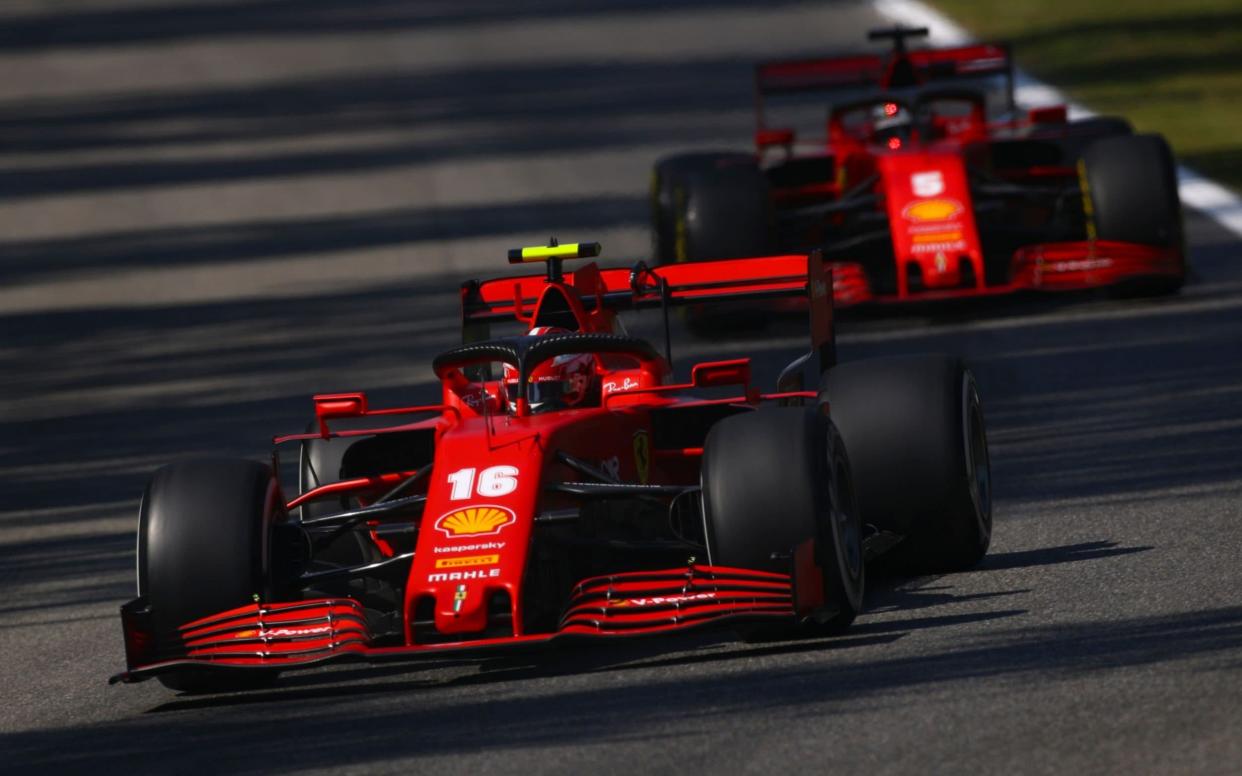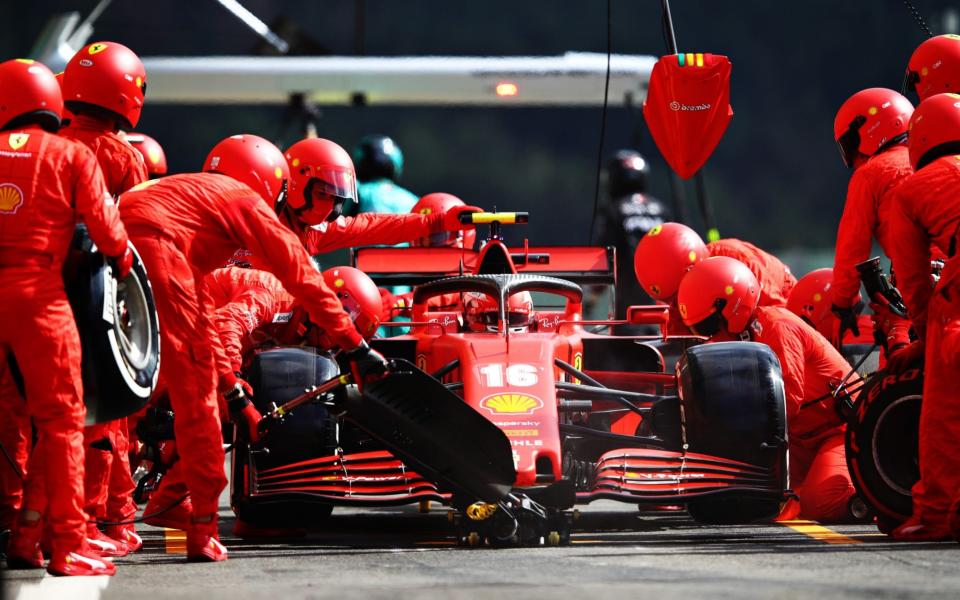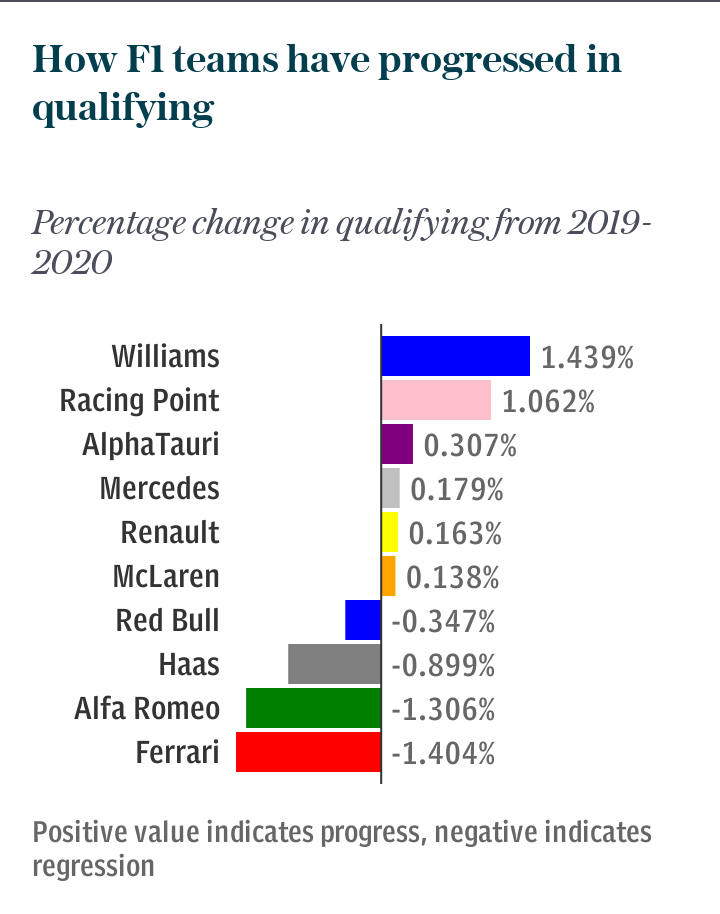'Humiliation': Why, ahead of their home Grand Prix in Monza, has it all gone wrong for Ferrari?

It was on a Friday afternoon in late February, just after winter testing in Barcelona had wound to a quiet conclusion, that Formula One’s world governing body slipped out a statement of quite astonishing presumption.
The FIA, confirming that it had completed its inspection of a Ferrari power unit that most rival teams suspected was far too good to be true, announced: “The specifics of the agreement will remain between the parties.”
Even set against this sport’s lavish indulgence of Ferrari, granted huge long-service payments and a power of veto over all crucial decisions, it was beyond the pale. How had the team’s 2019 engine broken the rules, and what punishment would be applied? Six months on, nobody is any the wiser.
For all the insistence by FIA president Jean Todt that no favouritism has been shown towards Ferrari, the omerta at his organisation makes you wonder whether an old jest, that its initials stand for “Ferrari International Assistance”, still has merit.
The one certainty is that whatever action the FIA took has left the Italians with a car emasculated beyond measure. Last Sunday at Spa, a power circuit where Ferrari had won the previous two years, Sebastian Vettel and Charles Leclerc finished 13th and 14th. In the drag race up the Kemmel straight, Vettel could offer no resistance to Kimi Raikkonen in an Alfa Romeo. For team principal Mattia Binotto, a bouffant technocrat who tends to hide his emotion behind his Harry Potter-style glasses, the embarrassment was overwhelming. Under his care, the most garlanded operation in motorsport has become a dysfunctional joke.
To compound the agony, Ferrari must this weekend parade their abject car at Monza, their home circuit, where Leclerc was last year engulfed by jubilant tifosi after a second straight win. Perhaps mercifully, no fans will be allowed into the circuit to share the ignominy.

Next weekend, in a scheduling change enforced by the pandemic, they decamp for a race at Mugello, Tuscany, in nominal celebration of their 1,000th grand prix. In the circumstances, it is an anniversary they would rather let slide.
Damon Hill revelled in his own triumphs against Ferrari while at Williams, not least when he achieved a crushing 40-second victory over Jean Alesi at the 1993 Italian Grand Prix. But ahead of this year’s instalment at Monza, he sees the Scuderia as a shell of what they were. “I’m absolutely stunned,” he says. “It’s worse than anybody could have imagined. I don’t know if we’ll ever get the true story about it, because the FIA have chosen to keep it behind closed doors, the issue of exactly what they’ve told them not to do.
“It’s a strange sport in that respect, our one. There is one player who is given exceptions, and that’s Ferrari. I’m not sure what the origins of that are, but it seems always to be the case. They are spared their blushes where other teams aren’t.”
According to Todt, who led Ferrari throughout their all-conquering Michael Schumacher years, the reasons for the team’s preferential treatment were originally sound. Founder Enzo Ferrari, he explained, had grown increasingly isolated as F1’s only full manufacturer of engine and chassis, and required an element of protection against the British teams.
But while the competitive realities have shifted, Ferrari’s ring-fenced wealth and influence have not. In recent years, they have pocketed an annual £70 million “heritage bonus” as the only team to have contested every world championship since 1950. Even after cigarette advertising was banned in F1 in 2006, they continued to derive vast riches from their partnership with Philip Morris International, the world’s largest tobacco company.

The scale of their resources makes their wretchedness on track all the more perverse. At Monza on Friday, Binotto was his understated self, saying: “We regret the absence of our fans, the red tide, here. We know they are suffering, and we are suffering just as much.”
The Italian headlines on Ferrari’s pitiful result in Belgium were merciless. “Slow, poor and unreliable” was how La Repubblica described their car, while La Gazzetta dello Sport accused the leadership of a “lack of ideas and guts”. Binotto acknowledges that the team’s arrangement with the FIA has forced them into a hasty and drastic rethink of the design concept, and the ensuing tailspin is plain to see. Leclerc, once the great hope, has the same points after eight races as Lando Norris. Carlos Sainz, who will next season forsake an improving McLaren for an unholy mess at Maranello, must wonder at his own reasoning.
Nobody, though, encapsulates Ferrari’s decline quite as vividly as Vettel. “It’s not the situation we would have wished for,” the German said, with admirable restraint, when asked how frustrating it was to serve out his final season in Ferrari red with such a hopeless car.
His only incentive, for the rest of 2020, is to show prospective suitors that he still deserves a place on the grid next year. Any loyalty to his employers has been tempered by the cold ruthlessness, itself a symptom of their cultural malaise, with which they confirmed his departure in May. A four-time world champion deserved for his exit to be handled with more grace.
Such is the downward spiral, the next casualty, surely, will be Binotto. As Hill puts it: “Ferrari, almost always in these situations, find someone who has to go. There is only so much humiliation they can withstand.”


